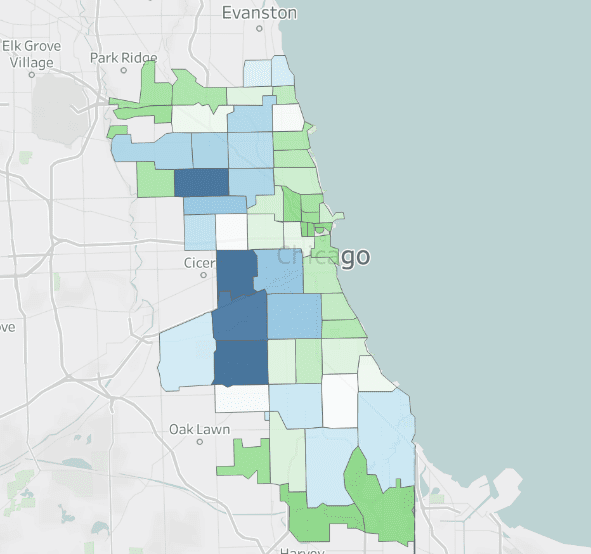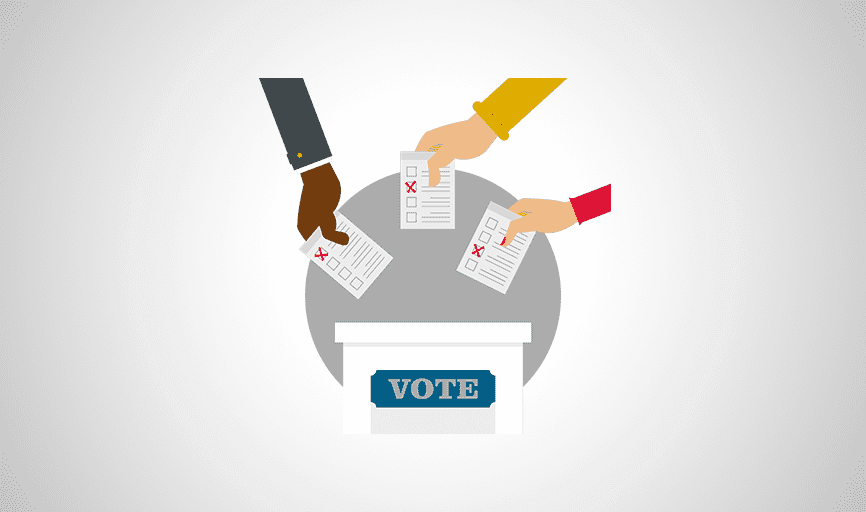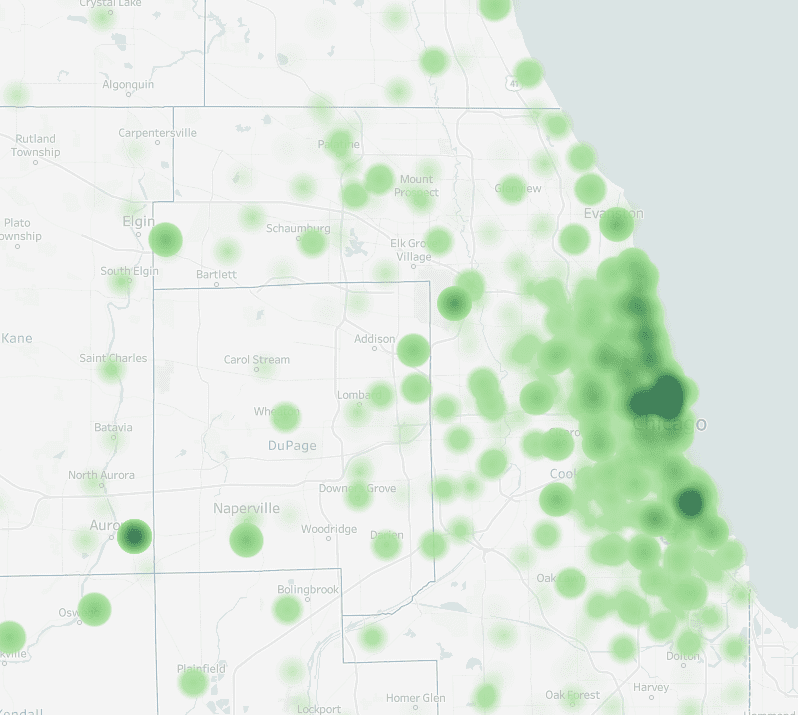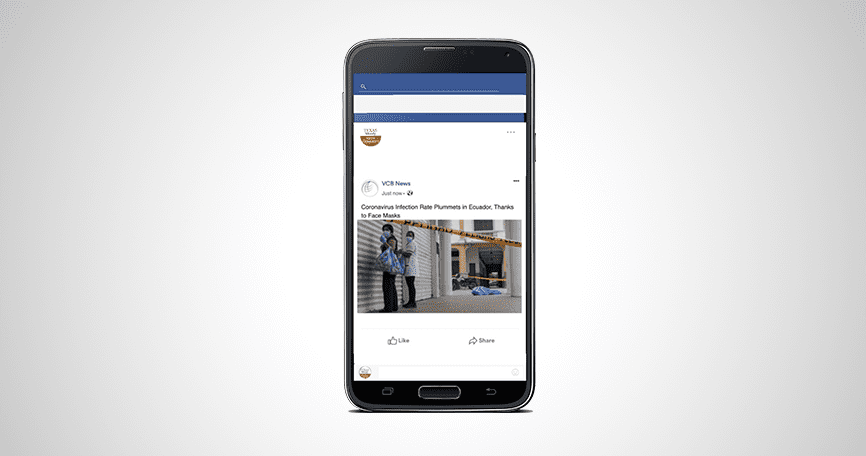Research

Disclosures of NYPD Surveillance Technologies Rais...
The disclosures by NYPD – the first required by the POST Act – raise substantial questions about how police in New York acquire and maintain data across dozens of surveillance systems, how NYPD thinks about safety and possible harms to society, and reveal new details about the suite of technologies enabling covert police activities on social media networks. Read More

How to Signal Trust in a Google Search
The Center for Media Engagement tested several versions of a Knowledge Panel — a search sidebar that provided information about a news outlet — to see which elements affected trust. Read More

Civic Signals: The Qualities of Flourishing Digita...
Discussions of digital space often focus on eliminating troubling content or improving the user-friendliness of the design. We’re proposing that digital spaces, like the physical spaces we inhabit, should use public-friendly design. Read More
Cable and Nightly Network News Coverage of Coronav...
The public frequently turns to television news for updates on the coronavirus pandemic — but not all viewers are getting the same story. Our report shows stark coverage differences across networks, revealing a troubling trend of politicized coverage of the virus. Read More

Coronavirus Coverage in Chicago
The Center for Media Engagement examined how Chicago newsrooms covered coronavirus on Facebook. Read More

Using Facebook Messenger to Improve Online Discuss...
The Center for Media Engagement partnered with Vox and Spaceship Media to explore whether the design of online discussion groups can affect conversation quality and if Facebook Messenger can be used as an engagement tool. Read More

News Distrust Among Black Americans is a Fixable P...
The Center for Media Engagement asked Black Americans how news organizations can better cover their communities to help bridge the divide between them and the media. Read More

Peer-to-Peer Texting and the 2020 U.S. Election: H...
New forms of direct communication, such as campaign apps and digital wallet passes on smartphones, are poised to bring political messaging to even higher levels of intimacy and efficacy, and, disturbingly, render them factually impossible to audit by outsiders. Read More

Encrypted Propaganda: Political Manipulation Via E...
The Center for Media Engagement propaganda research team spent the past year studying political manipulation on encrypted messaging applications (EMAs) in the U.S., India, and Mexico. Read More

News Comments: What Happens When They’re Gon...
We worked with 24 Gannett-owned newsrooms and Coral by Vox Media to engage in the most ambitious test to-date of what comment sections mean to news sites. Read More

Social Media Influencers and the 2020 U.S. Electio...
The Center for Media Engagement's propaganda research team reports on the phenomenon of social media influencers as an avenue for political campaign communications, describes the challenges this issue poses to platforms and governments, and briefly explores solutions. Read More

Want to Inform People About Registering to Vote? K...
The Center for Media Engagement teamed up with the Annette Strauss Institute for Civic Life to examine how news organizations can best communicate information about how to register to vote. Read More

Being Compassionate with Yourself May Help Bridge ...
Being able to form relationships with people you disagree with or viewing them with compassion is not easy. In this study, the Center for Media Engagement wanted to find out what types of personal self-compassion are more common among people who are better at doing this. Read More

International Perspectives on What’s Considered Ha...
The Center for Media Engagement in the U.S. teamed up with researchers from Erasmus University in the Netherlands and NOVA University in Portugal to figure out how people from these three countries define hateful speech and whether they differentiate it from profanity. The results offer global guidance for social media platforms and news outlets on how to effectively create moderation guidelines that limit confusion about why certain posts and comments are removed while others are allowed. Read More

Finding Common Ground: Habits that May Help
As politics continue to push Americans further apart, it can be difficult to find common ground. The Center for Media Engagement wanted to see what habits are common in people who find ways to get along with people they disagree with politically. Read More

Chicago Media Mapping
In an analysis of local Chicago news coverage, the Center for Media Engagement found that the media mentioned Chicago’s North / Downtown region more frequently than the West and South Sides and that there were differences in which topics were included in articles mentioning different parts of Chicago. This follows… Read More

Coronavirus Coverage: The Effects of Headlines and...
Coronavirus news can be overwhelming. To determine if newsrooms can help counteract the fatigue, the Center for Media Engagement tested the effects of three types of headlines and two types of images on news Facebook posts. Read More

Adding Humanizing Details to News Articles Produce...
The Center for Media Engagement wanted to know whether adding humanizing details about people when reporting on controversial political issues could help bring readers together across lines of difference and improve attitudes toward news organizations. Read More

How to Talk to People Who Disagree with You Politi...
How can you communicate with people you disagree with politically? This report reveals five strategies you can use. Read More

Gaining Trust in TV News
The Center for Media Engagement examined how TV news stations can increase trust by including certain elements in a story. Read More

Strengthening Science Engagement Fellowships throu...
This report describes the important role science engagement fellowships can have in closing the gaps between scientists’ interest in communicating with a broader public and their ability to do so. Read More

Covering Coronavirus: How Audience Needs are Chang...
The Center for Media Engagement took a snapshot of local news’ Facebook posts and public perceptions of local coverage of the coronavirus pandemic and compared it with coverage and public opinion from one month earlier. Read More

Covering Coronavirus: A Snapshot of the Informatio...
The Center for Media Engagement took a snapshot of the stories local newspaper and broadcast news outlets posted to Facebook on March 23, 2020. On the same day, we launched a survey asking people what information about the coronavirus (COVID-19) pandemic they wanted local news outlets to share. Read More

Reporter Bios Alone Aren’t Enough to Boost T...
Providing reporter bios on a news website is a common practice. The Center for Media Engagement has already shown that reporter bios, when used in combination with other trust strategies, can boost reader trust in and engagement with news. Now we wanted to test how biographies alone influence reader perceptions. Read More

Testing Behind the Story Cards
We explored whether the placement of the Behind the Story card on a news organization’s website affects readers’ recall of the card and trust in news. Read More

Images That Generate Clicks Among Both Liberals an...
The Center for Media Engagement partnered with ProPublica to determine if news story headlines and images can be crafted in ways that appeal to both liberals and conservatives. We found that Facebook ads using straightforward photographs, instead of illustrated graphics, performed better among both liberals and conservatives. However, changing… Read More

Social Media: The Good, The Bad, and How Platforms...
As part of the Civic Signals initiative, the Center for Media Engagement is releasing an excerpt from a series of reports aimed at achieving more public-friendly digital spaces. Read More

What People Want to Know About the News
Knowing what readers want out of a story – or what they think newsrooms often fail to address – provides an opportunity to increase trust. Read More

Story Labels Alone Don’t Increase Trust
The Center for Media Engagement wanted to find out if labeling news stories (using labels such as news, analysis, opinion, or sponsored content) increases trust. Read More

The Keys to Powerful Solutions Journalism
Solutions journalism offers comprehensive coverage of an issue by proposing solutions rather than just focusing on the problem. The Center for Media Engagement set out to determine how certain components of solutions journalism affect the way readers evaluate both the reporting and the issue. We found that stories covering… Read More

